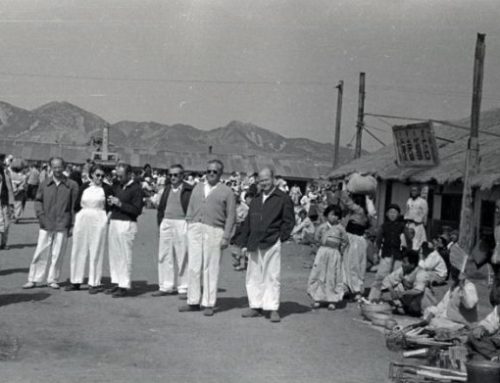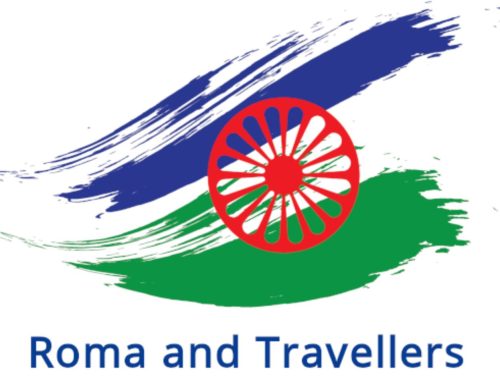The project Learning to Disagree was presented in Italy during a National Training organized in cooperation with the Chair of History Education of the University of Bari (Apulia region). The training took place as a cycle of three webinars held in July and focused on strategies to implement learning in times of pandemic.
Speakers during the first two meetings presented resources and examples of tasks developed to foster active learning with students working through online platforms. The last session focused on the challenges that the emergency poses to traditional models of education and knowledge.
Video lessons and materials have been published in Italian on Historia Ludens.
Roberto Maragliano, former professor of Education at Roma Tre University, argued that there is a relevant difference between “physical distance” and “social distance”. Whereas the first one is necessary in our times, teachers should aim at avoiding the second one. He highlighted that the current state of crisis of school teaching in Italy could be an opportunity to revise some of its long-standing principles of inspirations. Italian schooling still favours upper general secondary schools over technical/vocational and primary schools, and keeps alive a conflict between humanistic and scientific culture, as well as verbal and non-verbal learning. Forced online learning put into evidence the pitfalls of this system. Although in the immediate aftermath of the Corona crisis the Italian teachers tended to take on the challenge and look for new approaches, in the following months a strong reaction has tended to debase these attempts. The long-term impact of this phase is thus difficult to foresee and might contribute to confirm an old education model rather than to overcome it.
Antonio Brusa, former professor of History Education at the University of Bari, stated that each generation tends to refer to a presumed former golden age of historical knowledge and identifies a cause of growing historical ignorance in its present time. Nowadays, online learning is taken as the cause of Italian students’ ignorance. Although he admitted that many Italian students were not able to take advantage of online learning, Brusa claimed that digital resources enabled millions of them to keep on learning. Thus, online learning should be seen as part of the solution. However, Brusa pointed out that using technologies and new media is not enough to innovate transmissive approaches to teaching and learning. On the opposite, teachers should be aware of the risk that the use of up-to-date digital technologies covers a very traditional, teacher-centred approach. Moreover, the use of technologies must base on awareness of the epistemology of the disciplines and specific aims of each lesson. These, in turn, depend on real pupils and students.
Mr Paolo Ceccoli, former EuroClio President, opened the first session by presenting the Association and its activities. This was of special interest for Italian teachers because there is not a single strong association of history teachers in the country. This a great occasion to present Euroclio activities in Italy.
Mr Valerio Bernardi, member of the core team of Learning to Disagree, described the aims and the teaching materials that have been produced. In the first session, he introduced and showed some aspects of the teaching guide and how the project developed during the years. He also presented the activities prepared from the core team and published on Historiana. During the second session, he provided a detailed presentation of the activity about migration and the Vlora case study (which will also be presented at the 2020 EuroClio Annual Conference, see link). One third of the participants expressed a will to use the material proposed in class next year.
Ms Lucia Boschetti, who is working on a PhD in History Education at the University of Bari, focused on playful learning in history. She stressed the importance of creative learning and presented an activity set up in the 16th century. It aimed at enabling students to understand the changes in the concept of citizenship from Modern Times to European citizenship through playing interactive stories. Moreover, she explained how the free programming language Scratch supports the development of computational thinking as well as of historical thinking. Indeed, by creating a project about the crisis of the 14th century by using Scratch, students have to ask themselves questions about historical relevance and causality.
Mr Cesare Grazioli, who has published several articles about teaching contemporary history in Italy, explained how he planned and implemented materials to assess students’ historical thinking skills when learning online. He proposed examples of both formative and summative assessment. Attendee particularly appreciated an assignment which required students to select, analyse and use images as evidence of contention regarding political and social problems in the aftermath of the Second World War.
75 teachers followed at least 2/3 of the course, and 63 of them answered a final survey. On the basis of the results, attendees were equally distributed between lower secondary and upper secondary schools and came from all around Italy, although the majority worked in Apulia.
The course aimed to offer an opportunity for training but also to create a community of educators wishing to exchange ideas, doubts and experiences. The attendee particularly appreciated this aspect. Indeed 94% of them declared that they would like to join other meetings to discuss about daily teaching routine with colleagues. A higher percentage agreed that digital resources can contribute to improving the quality of teaching and learning after the pandemic. As argued by experts, teachers can achieve this result if they can plan their lessons with an awareness of the aims and methods of history teaching. Otherwise, online teaching and learning are likely to strengthen the comeback of a purely transmissive approach to the discipline, which proved to be poorly effective regardless of in-class or on-line teaching.
Written by Valerio Bernardi, history teacher and member of the Learning to Disagree team & Lucia Boschetti, PhD candidate in History Education at the University of Bari













